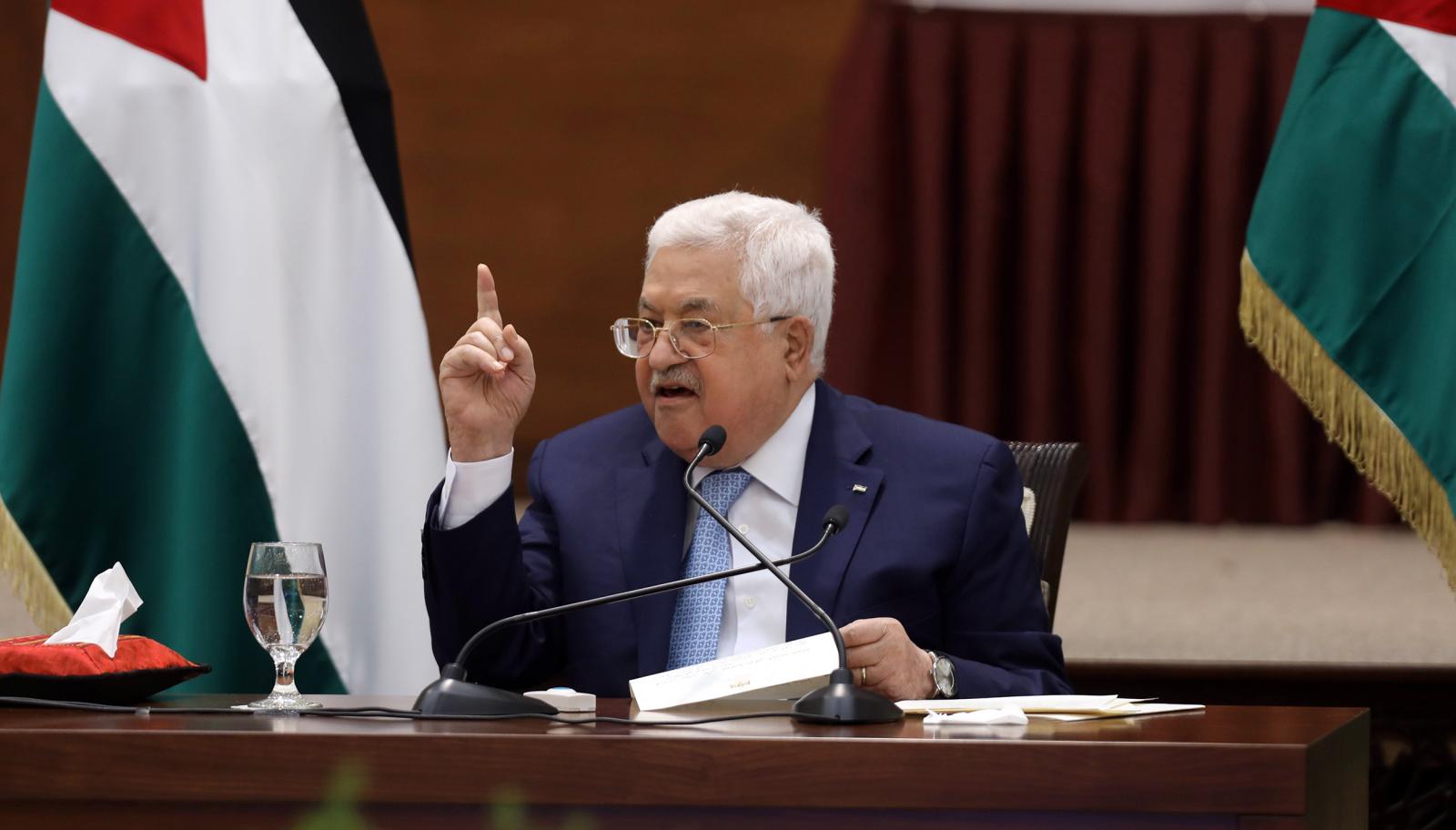by Hugh Fitzgerald

When the United Arab Emirates and then Bahrain announced their normalization agreements with Israel, the PA was quick to denounce both as “betraying Jerusalem, Al-Aqsa Mosque, and the Palestinian issue.” The two countries were further accused of “stabbing the Palestinians in the back.” This did not have the desired effect. Both the UAE and Bahrain denounced the Palestinians, as did people in other Gulf states, including Saudi Arabia. And when the PA asked the Arab League to denounce the UAE and Bahrain, the Arab League turned the request down flat. Now, with Sudan following the example of the UAE and Bahrain in normalizing relations with Israel, the P.A. appears to have learned its lesson, as reported by the excellent journalist Khaled Abu Toameh here: “What’s behind the PA’s muted response to Israel-Sudan deal?,” Jerusalem Post, October 24, 2020:
When the normalization agreements between Israel, the United Arab Emirates and Bahrain were announced, the Palestinian leadership was quick to issue strongly worded statements condemning the two Gulf states. In the case of Sudan, the third Arab country to normalize its relations, the Palestinian leadership’s reaction appears to be much more restrained….
A statement issued by the Palestinian leadership on August 13 accused the UAE of “betraying Jerusalem, al-Aqsa Mosque and the Palestinian issue.”
On September 11, the Palestinian leadership, responding to the Israel-Bahrain normalization agreement, repeated the same charge: “The Palestinian leadership announces its strong rejection and condemnation of the normalization of relations between the Israeli occupation state and Bahrain and considers it a betrayal of Jerusalem, al-Aqsa Mosque and the Palestinian issue.”…
On Friday [October 23], however, the Palestinian leadership, reacting to the Israel-Sudan agreement, appeared to have toned down its rhetoric.
An official statement issued by the Palestinian leadership in Ramallah did not repeat the allegations it previously made against the UAE and Bahrain.
In a laconic and brief statement, the “Palestinian presidency affirmed its condemnation of the normalization of relations with the Israeli occupation state that usurps the land of Palestine” and said that “no one has the right to speak on behalf of the Palestinian people and the Palestinian cause.”…
Having let loose with rhetorical double-barrels at the UAE and Bahrain for daring – without asking permission of the Palestinians – to look after their own national interests, the Palestinian Authority was chagrined to discover that its angry reaction only made the Emiratis and Bahrainis furious, and that fury was shared by others in the Gulf States, including Saudi Arabia. Apparently the PA, and Mahmoud Abbas, had completely miscalculated their hold on the Arab states and peoples. Many no longer care what the Palestinians demand of them; they are going to pursue their own agendas, whatever the resulting rage in Ramallah comes from the spittle-flecked mouth of Mahmoud Abbas. Several things have now filled the Palestinians with great anxiety. They expected that the other Arabs would rally round them, only to find that, on the contrary, the citizens of other Gulf Arab states expressed their support for the UAE and Bahrain. While Saudi Arabia did not make any official statement, many Saudis on social media were damning the Palestinians for their ingratitude, selfishness, and the coarseness of their expression. Among them was Prince Bandar bin Sultan, the former Saudi ambassador to Washington, who on the Saudi-owned Al-Arabiya television declared that the Palestinian criticism was a “transgression” that was “reprehensible” and “entirely unacceptable.” “This low level of discourse is not what we expect from officials who seek to gain global support for their cause,” he said.
The PA also realized that it had made a mistake in allowing Palestinians to be seen defacing images of the leaders and flags of the UAE and Bahrain. This provoked great anger among politicians, journalists, and political activists in several Gulf states. The PA implored the Palestinians not to repeat the error with Sudan and to stop “harming the symbols and leaders of Arab countries.”
The PA was gobsmacked when it asked the Arab League to denounce the UAE and Bahrain, only to find that the Arab League unanimously, and unceremoniously, refused. It was not the UAE and Bahrain that were isolated, but the Palestinian Authority. And when the Sudan then followed the UAE and Bahrain in agreeing to normalize relations with Israel, there must have been hurried and anxious consultations in Ramallah, to weigh exactly how to respond.
Someone really ought to take Mahmoud Abbas aside and tell him that “no one” – not the UAE, not Bahrain, not Sudan, not those Arab states that after Sudan will follow suit in normalizing relations with Israel – has arrogated to itself “the right to speak on behalf of the Palestinian people.” Neither the UAE, nor Bahrain, nor Sudan, has either promoted or impeded the Palestinians and their putative cause. It no longer is of much interest to them. They have other, bigger fish to fry – to wit, their own nations’ well-being. It is this sudden uncoupling of the Palestinians’ caboose from the train of Arab states that are now headed toward Israel and normalization of relations that has so unnerved the PA. And Mahmoud Abbas, sitting in his $13 million palace in Ramallah, no longer knows where to put his feet or hands.
First published in Jihad Watch.
- Like
- Digg
- Del
- Tumblr
- VKontakte
- Buffer
- Love This
- Odnoklassniki
- Meneame
- Blogger
- Amazon
- Yahoo Mail
- Gmail
- AOL
- Newsvine
- HackerNews
- Evernote
- MySpace
- Mail.ru
- Viadeo
- Line
- Comments
- Yummly
- SMS
- Viber
- Telegram
- Subscribe
- Skype
- Facebook Messenger
- Kakao
- LiveJournal
- Yammer
- Edgar
- Fintel
- Mix
- Instapaper
- Copy Link






